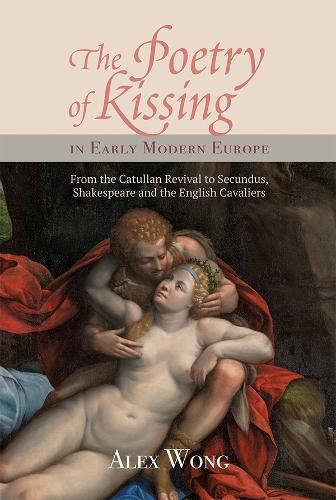Readings Newsletter
Become a Readings Member to make your shopping experience even easier.
Sign in or sign up for free!
You’re not far away from qualifying for FREE standard shipping within Australia
You’ve qualified for FREE standard shipping within Australia
The cart is loading…






There is a great deal of kissing in Renaissance poetry, but modern critics do not generally recognise (as early readers did) that the literary conventions of the kiss were closely related to a fully-formed, lively and popular genre of Neo-Latin kissing-poems . Beginning with the imitation of Catullus in fifteenth-century Italy, this specialised form was securely established in the next century by the Dutch poet Janus Secundus, whose elegant Basia ( Kisses ) were an extraordinary international success. Secundus stimulated a long-lived tradition of Latin and vernacular kisses , willfully repetitious and yet meticulously varied, which can tell us much about humanist poetics.
This book offers a critical account of the Renaissance kiss-poem, using an abundance of vivid and often racy examples, many of them drawn from authors who are all but forgotten today. It shows that the genre had a sophisticated rationale and clear but flexible conventions. These include habits of irony, mood and structure that proved widely influential, and some slippery, self-conscious ways of dealing with masculine sexuality. Presenting new readings of English writers including Sidney, Shakespeare and Donne, the study also reminds us how important Neo-Latin writing was to the literary culture of early modern Britain. A number of well known texts are thus placed in a context unfamiliar to most modern scholars, in order to show how deftly their kisses engage with an international tradition of humanist poetry.
Alex Wong is currently a Research Fellow in English literature at St John’s College, University of Cambridge.
$9.00 standard shipping within Australia
FREE standard shipping within Australia for orders over $100.00
Express & International shipping calculated at checkout
There is a great deal of kissing in Renaissance poetry, but modern critics do not generally recognise (as early readers did) that the literary conventions of the kiss were closely related to a fully-formed, lively and popular genre of Neo-Latin kissing-poems . Beginning with the imitation of Catullus in fifteenth-century Italy, this specialised form was securely established in the next century by the Dutch poet Janus Secundus, whose elegant Basia ( Kisses ) were an extraordinary international success. Secundus stimulated a long-lived tradition of Latin and vernacular kisses , willfully repetitious and yet meticulously varied, which can tell us much about humanist poetics.
This book offers a critical account of the Renaissance kiss-poem, using an abundance of vivid and often racy examples, many of them drawn from authors who are all but forgotten today. It shows that the genre had a sophisticated rationale and clear but flexible conventions. These include habits of irony, mood and structure that proved widely influential, and some slippery, self-conscious ways of dealing with masculine sexuality. Presenting new readings of English writers including Sidney, Shakespeare and Donne, the study also reminds us how important Neo-Latin writing was to the literary culture of early modern Britain. A number of well known texts are thus placed in a context unfamiliar to most modern scholars, in order to show how deftly their kisses engage with an international tradition of humanist poetry.
Alex Wong is currently a Research Fellow in English literature at St John’s College, University of Cambridge.